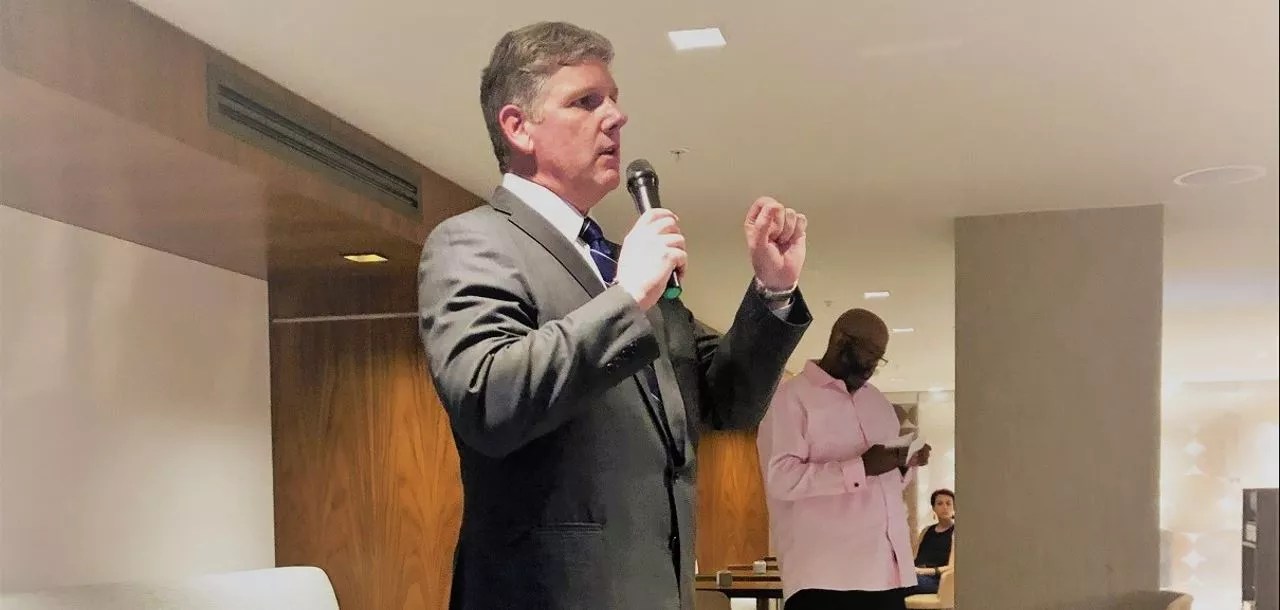
Jim Schutze

Audio By Carbonatix
Let’s begin with a stipulation: Everyone wants the coronavirus pandemic to end, as early and as benignly as possible. There is nothing to be gained from the kind of physical and economic suffering COVID-19 is inflicting on the planet.
That desire leads us to seek out information that confirms our hopes – that maybe the virus is less dangerous for those who live in hot, humid climates, or perhaps it isn’t as deadly as it currently appears to be. People dying is bad. The economy grinding to a halt is bad.
It’s understandable that people want to end the uncertainty and get back to their lives as soon as possible. There’s a point, though, when optimism veers into denial or, in some cases, trutherism. President Donald Trump, with his proclamations about packing churches on Easter, has crossed the line. So has Dallas City Council member David Blewett.
Last week, Blewett had a testy exchange with Dr. Philip Huang, the head of Dallas County Health and Human Services.
“What’s the material difference between the regular flu and this version of the flu?” Blewett asked Huang.
“The difference in terms of significance? I mean the mortality rate… ” Huang said, before Blewett cut him off.
“I haven’t read that there’s a huge difference in mortality,” Blewett said.
“Oh no, it’s about 13 times more on the conservative end to 34 times more,” Huang said.
“That’s what I read about Italy, which has an older population. I haven’t read about that in the States,” Blewett replied.
One would’ve hoped, as infections piled up in Dallas and the United States over the next week, that Blewett, who represents portions of downtown Dallas, Uptown, Oak Lawn and East Dallas, would’ve backed off, even a little.
He has not.
Thursday night, Blewett made a lengthy post on Facebook, about how he’s a family man concerned about the health crisis, but that we really need to get Dallas’ businesses back up and running ASAP.
Here’s the crucial bit:
“This health and economic crisis is personal to me, and I am accumulating as much data as I can to help make the best decisions for all of us.
“Having said all of that … I am uncomfortable with many of the decisions we made based on the limited data we initially had. More testing is finally giving us better data … and now epidemiologists are revising their models to more accurately predict infection rates and mortality.
“The attached article from New Scientist Magazine reflects significant revisions to models used in the UK which we relied on here in the US. And hopefully reflects an ending to this crisis much sooner and much less severe than first predicted.
“We must get our lives and our economy up and running again as soon as practicably possible. I hope this new data gets us there quicker.”
First off, Blewett makes his living in real estate. He isn’t a doctor, epidemiologist or public health official. He should – like we all should – be listening to experts’ interpretation of the data that’s emerging as the pandemic continues, not “accumulating” it himself.
Second, before criticizing the decisions made by leaders like Dallas County Judge Clay Jenkins and Dallas Mayor Eric Johnson – both of whom have been almost universally lauded for their handling of the crisis – Blewett should make sure he has his argument straight.
The New Scientist article cited by Blewett highlights testimony given to a United Kingdom parliamentary committee by Neil Ferguson, an epidemiologist at Imperial College London. Ferguson’s testimony was not about the crisis being less severe or shorter lived than previously thought. It was an argument in favor of extreme social distancing, not the other way around.
Take it from the man himself:
1/4 – I think it would be helpful if I cleared up some confusion that has emerged in recent days. Some have interpreted my evidence to a UK parliamentary committee as indicating we have substantially revised our assessments of the potential mortality impact of COVID-19.
— neil_ferguson (@neil_ferguson) March 26, 2020
2/4 -This is not the case. Indeed, if anything, our latest estimates suggest that the virus is slightly more transmissible than we previously thought. Our lethality estimates remain unchanged.
— neil_ferguson (@neil_ferguson) March 26, 2020
3/4 – My evidence to Parliament referred to the deaths we assess might occur in the UK in the presence of the very intensive social distancing and other public health interventions now in place.
— neil_ferguson (@neil_ferguson) March 26, 2020
4/4 – Without those controls, our assessment remains that the UK would see the scale of deaths reported in our study (namely, up to approximately 500 thousand).
— neil_ferguson (@neil_ferguson) March 26, 2020
The United Kingdom has a population of about 66 million. The United States has a population of 327 million. Those 500,000 deaths in the U.K. would be the equivalent of 2.47 million in the U.S.